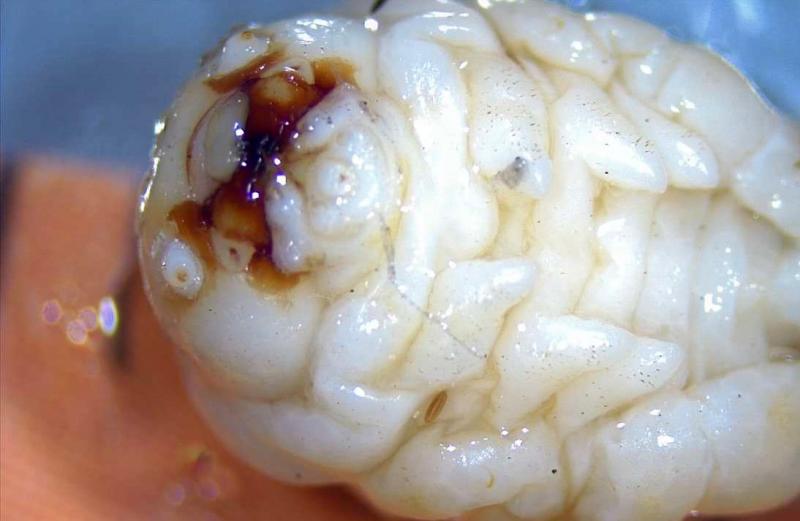PHILADELPHIA – Six recent insect pest interceptions in Philadelphia, including a first ever local discovery, illustrate how Customs and Border Protection agriculture specialists continue to safeguard our regional and national agricultural resources against destructive invasive pests hitchhiking inside imported shipping containers.
The U.S. Department of Agriculture confirmed today that a Nephotettix nigropictus (Cicadellidae), commonly known as a green rice leafhopper, was the first ever discovery of this insect in the Delaware Valley. CBP agriculture specialists discovered it in a container of aluminum billets from India on March 11. The container was ordered re-exported.
Additionally, during May, CBP agriculture specialists discovered five wood borers, including:
- a live immature Cerambycidae larva on May 6 inside wood dunnage in a container of steel structures from Italy;
- a live immature Cerambycidae larva on May 13 inside wood dunnage in a container of steel from Switzerland;
- two live adult Cerambycidae insects on May 18 inside wood dunnage in a container of dunnage and steel from Brazil; and
- a live immature Siricidae larva on May 19 inside wood dunnage in a container of dunnage and steel from Turkey.

Cerambycidae are commonly known as longhorn beetles; Siricidae are commonly known as horntail or wood wasps. All are wood-boring actionable insect pests.
In each case, CBP agriculture specialists discovered holes in wood dunnage and used tools to cut and chisel out the insect pests. Wood dunnage is used in shipping containers to brace and stabilize commodities during transport. International conventions require that wood dunnage and packing materials are certified to be treated and pest free.
CBP submitted the specimens to a local USDA entomologist for identification, which determined an appropriate mitigation strategy. In each case, the importer destroyed the dunnage by incineration.
“Customs and Border Protection’s agriculture protection mission is vital to our nation’s agricultural resources and economic security, and these discoveries, including this first-in-port leafhopper, is evidence of our agriculture specialists’ tireless efforts every day to intercept destructive, invasive pests,” said Casey Durst, CBP’s Director of Field Operations in Baltimore.
CBP agriculture specialists have extensive training and experience in the biological sciences and agricultural inspection.
On a typical day nationally, they inspect over 1 million people as well as land, air and sea cargo imported to the United States, and intercept 314 agriculture pests and 4,695 prohibited meat, plant materials or animal products. Learn more about what CBP did during "A Typical Day" in 2019.
CBP's agriculture protection mission is led at ports of entry by CBP agriculture specialists from the Office of Field Operations. Please visit CBP Ports of Entry to learn more about how CBP’s Office of Field Operations secures our nation’s borders. Learn more about CBP at www.CBP.gov.
Follow the Director of CBP’s Baltimore Field Office on Twitter at @DFOBaltimore and on Instagram at @dfobaltimore for breaking news, current events, human-interest stories and photos.

